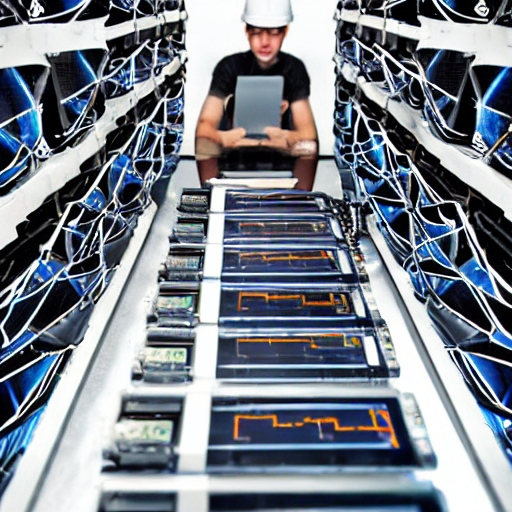Venezuela’s temporary ban on cryptocurrency mining within the country is basically putting an end to an industry that President Nicolás Maduro has worked hard to develop.
State officials originally prohibited crypto mining in March, after starting an inquiry into a major corruption operation in which crypto wallets were reportedly used to divert money owed to the state-run oil giant Petróleos de Venezuela SA.
Maduro had personally promoted the adoption of cryptocurrency, notably the government-issued Petro sovereign token. The currency was marketed as a viable alternative to the Venezuelan bolivar in the midst of hyperinflation, as well as a means of circumventing punishing US sanctions. However, as the state’s crypto mining ban enters its third month, many cash-strapped miners may be forced to close permanently. And the Petro, which never took off but was once seen as Venezuela’s future gateway by Maduro, ceased trading on May 24.
It is terrible that after going through so much bother to formalize and do things correctly, we are now in this scenario, said Alexis Lugo, who has been working with digital assets for seven years and now runs an educational crypto initiative called Criptoneros.
Approximately 80 persons have been arrested in relation with the oil scandal, in which Venezuelan crude was allegedly sold through the country’s crypto monitoring body without paying fees to PDVSA. This includes former technology minister Hugbel Roa, who was key in promoting the Petro, and Joselit Ramrez, who oversaw the crypto superintendence. However, it is unclear why the crypto mining prohibition is still in place.
As Petro tokens are entirely “pre-mined” by the government, the great majority of miners, who use specialized computers to confirm transactional blockchain data, are concentrated on Bitcoin and have nothing to do with it. However, according to estimates from mining associations, 75,000 pieces of mining equipment are thought to have been disconnected. That is nearly the same as the complete fleet of equipment held by a significant publicly traded mining firm like Riot Platforms Inc.
According to persons with knowledge of the situation who wished to remain anonymous, the intelligence police, known as Sebin, have been conducting audits of miners to ensure any monies used to purchase equipment didn’t come from the oil corruption scheme. But no miners have reportedly been arrested or accused of a crime to date.
“The innocent are paying for the sins of the guilty,” declared Juan Blanco, CEO of BitData, a 10-person Caracas-based cryptocurrency miner that also specializes in crypto teaching.
A Changed Landscape
The nation’s prohibition on mining comes as Bitcoin miners around the world have been struggling due to the decline in the currency and rising electricity prices. Multiple miners have warned of liquidity shortages since Core Scientific Inc., the largest public Bitcoin miner by processing power, filed for bankruptcy last year.
Due to some of the lowest electricity prices in the world, Venezuelan businesses had been partially protected from rising power expenses. The nation’s reputation as a mining paradise has been called into question by the Maduro government’s about-face on its crypto-friendly policies.
Cryptography was described by Maduro as the “hand in hand” force that would drive the revolution. His administration had developed a Petro app, a cryptocurrency bank, and billboards with the Petro’s logo on top of government buildings to promote its use.
Things today have significantly changed. The majority of the large-scale Petro advertisements have vanished, armed police officers are stationed outside the country’s crypto regulator, and Venezuelan crypto exchanges have been forced to stop operating in the local currency after regulators had their bank accounts blocked. This is in addition to the ban on mining and trading of the Petro cryptocurrency.
According to cryptocurrency dealer and director of Asonacrip, a group of traders and miners, Humberto Quevedo, no one can predict with certainty what will happen with the Petro or the crypto regulator. The absence of a formal announcement leaves everyone in the dark.








